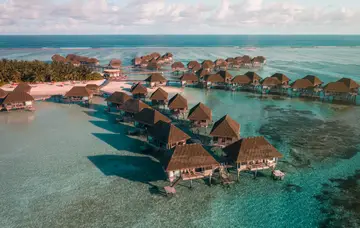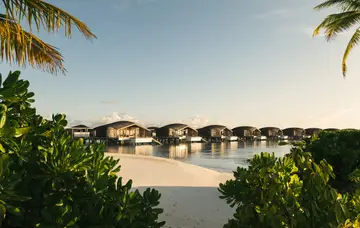Maldivians are friendly and polite people, and a handshake is the most common form of greeting when you meet them. However, the Maldives is also a Muslim country and the population strictly follows the Islamic religion and social rules. While handshakes are common between men and women, you should know how to greet the opposite sex when you are here since men and women do not generally make physical contact.
If you're a man, it's best to let the woman offer her hand first - if she doesn't, then a nod or bow is a perfectly acceptable greeting. Here are some phrases in the Maldives' local language you should know when you're here.
Hello - Assalaamu Alaikum (from Arabic, meaning peace be upon you)
Nice to meet you - Baddhalu vee thi varah ufavejje
Goodbye - Dhanee / Vakivelan
What is your name? - Kon nameh tha kiyanee?
My name is (your name) - Aharenge namakee (your name)
How are you? - Haalu kihineh?
How are you? (informal) - Kihineh?
Fine, thank you - Ran'galhu, shukuriyaa
Yes - Aan
No - Noon
Please - Adhes kohfa ( means I beg you, and is not commonly used)
Thank you - Shukriyaa (from Hindi)
You’re welcome - Maruhabaa
Excuse me - Ma-aaf kurey
I’m sorry - Ma-aafu kurey
Do you speak English? - Ingireysin vaahaka dhakkan ingeytha?
Is there someone here who speaks English? - Mithaa ingireysin vahaka dhakan ingey mehaku eba huri tha?
I don’t understand - Ahannakah neyngunu
Where is the toilet? - Faahanaa kobaitha?
How much is this? - Meethi kihaavarakah?
Have a nice meal / Bon appetit - Meerukon' kaalacchey
Happy New Year - Ufaaveri aa aharakah edhen
Help! - Salaamai kurey!
Look out! - Balaa balashey!
Stop - Madu kurey
Good morning - Baajjaveri hendhuneh
Good evening - Baajjaveri haveereh
Good night - Baajjaveri reygande
Good night (when you retire to bed) - Ufaaveri nidhumeh
With these words and phrases in the local Maldives language of Dhivehi, you should be able to better interact and connect with people on the local islands such as Malé, and even impress them.
If you're planning a vacation in the Maldives and would like to connect with the local culture, just let us at the Maldives Club Med resorts know. At Club Med Kani and Finolhu Villas, we are experienced at arranging tours around the Maldives for our guests including a tour to discover Malé, and would be happy to help you make the most of your holiday.




